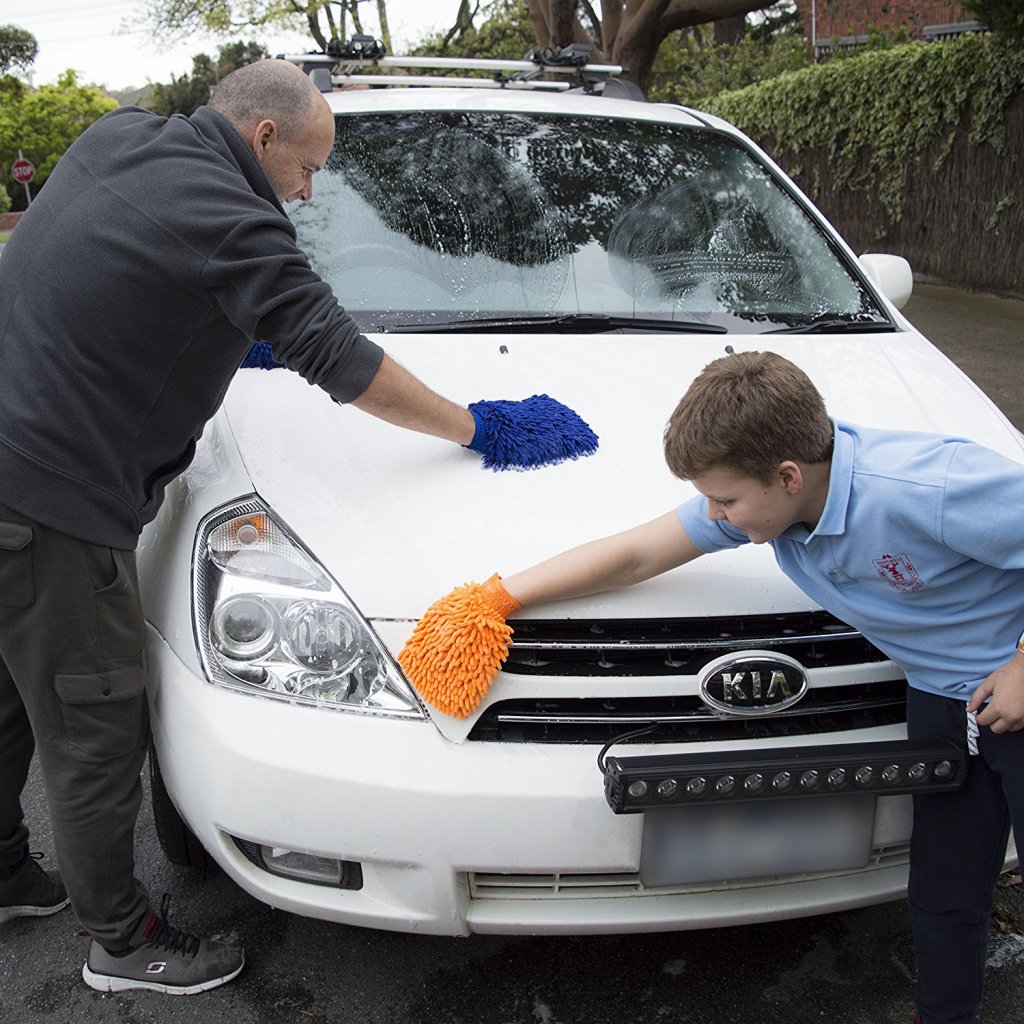What to Consider When You Want a Working Child

If your child isn’t a prodigy like Alexandra Nechita, the 11 year old who sold paintings for $100,000 or a business genius like the adorable bowtie designer behind Mo’s Bows then there will come a time when the kid needs to get a job.
For some children this won’t happen until they’ve finished college and grad school when they join the professional world as a fully credentialed doctor, lawyer or CPA.
Not every kid is a genius or a dentist in the making. Some will be inspired to make a little pocket change with a paper route at an early age while others will be perfectly happy to camp out on the couch and play video games until something forces them out into the cash or credit world.
Circumstances
Some of this depends on family finances and the culture and customs with which we are comfortable. If you and your spouse have jobs and young children still at home you might be relying on your older kids to do household chores and baby sitting. They’re already working but they don’t yet have a job.
If you’re a parent who enjoys giving your child the things they like and need and your bank account can handle it then perhaps there is no need for your kids to work at an early age.
Still, that doesn’t mean there isn’t a good reason for them to do it. At some point they have to become independent people who participate in the world around them without your guidance. A job can prepare them to do just that.
Some business leaders feel it is more important to prepare children for the realities of the workplace than pushing them to ace every exam. Excelling in the classroom does not guarantee success in the professional world and we need to let kids know that there are other skills that will be required of them when their education is complete.
The working environment can also help them make decisions about what kind of profession or business they might like to pursue.
Working to Learn, Not Just for Money

There are plenty of other reasons for your child to make their own money.
Do you want them to learn responsibility or sharpen their social skills? Do you need them to save for a college fund; contribute to the family finances; or is it time for them to understand that video games and clothes cost money of which there is not an endless supply?
If you’re worried about them developing bad habits on a long summer break or even the shorter spring break pushing them to get a job might open them up to new experiences that they will actually enjoy.
Remind them that their college application might benefit from previous work experience and it will definitely help them get jobs in the future.
Just when it is time to push your child to get a job?
A part of the equation is, of course, why you think your child should be working. All kids should be given an understanding of economic realities.
Most schools don’t include this in their basic education so it’s up to mom and dad to present the facts, especially the ones that affect them most. If you need your child to save money for college or contribute to the family finances this requires a plan that is mutually agreed upon.
Just as some kids are given an allowance, kids who earn should be given a budget to keep, targets to hit and a way to keep track of their accounts. If they are expected to turn over their earnings to the family they should be allowed to understand what portion of the general fund they are supplying and where the money goes.
A sense of accomplishment helps to develop self worth and may provide the incentive to improve performance and gain promotions. Earning money for college is a little more complex and should be discussed with school advisors.
This money will figure into the overall financial aid picture and kids should understand exactly how much they are expected to contribute, whether there will be a contribution from parents or if there are grants and scholarships available to them.
Of course, timing is everything. If they are currently enrolled in AP classes or trying to improve their grade point average then it may not be the right time to distract them. This could be the moment that wins them a scholarship or opens the door to a program that will offer valuable internships in the professional world.
Again, school advisors can help with these decisions and keep educational opportunities in balance.
On the other hand, some kids will actually benefit from being pushed into taking a job as a break from constant studies. This might be an unexpected relief from pressures they have put themselves under.
Laws Factor in as Well
Before we send them out to look for work we should be aware of regulations regarding child labor. Federal laws regulate the types of jobs that kids can do under the age of 18. These are somewhat different in farming communities but, in general, one must be at least 14 years old to be hired for non-agricultural jobs.
A child who is 14 or 15 years old may not work more than 3 hours a day or 18 hours a week during the school year.
Local laws may further limit the kinds of jobs your child can take and it is best to do plenty of research in this area so we understand what kinds of jobs they should pursue.
If we send them out to apply for jobs they can’t have we are setting them up to fail. We don’t want them to feel defeated before they even begin. We want this to be a good experience for them.
Other Considerations
If your child is shy you might be hoping to get them out of their shell by pushing them into getting a job. It’s a natural instinct but we should consider the kind of situation they’ll be expected to face on the job.
At 16 they’re allowed to work in the retail world but they may not be ready to face strangers and count cash for several hours a day.
An inventory job or stocking shelves might be a better way for some kids to start. Either way, just looking for a job is going to demand some kind of contact with strangers in a new situation.
Most jobs are advertised online so filling out job applications on a website develops certain computer skills making this a little less scary. Some businesses still put signs in the window requiring applicants to go in and find a manager, ask for an application and inquire about the skills they are looking for.
Some kids do this easily while others need a little encouragement to talk to people they don’t know. Be patient and supportive. Sometimes it helps to subtly point out the ways in which other people behave so kids become aware of habits that might help them get a job and be a good employee.
What if my Child is Too Young but Still Willing to Work?
If your child wants a job but they aren’t yet able to see over the kitchen counter there are less formal jobs that young ones can pursue. A supervised car wash can bring in the cash but adults need to be prepared to spend the entire day “working” as well.

Mowing the lawn and working in the yard are usually things a 12 or 13 year old can do. Raking leaves, “dead-heading” roses, weeding, planting and mulching are not too difficult.
Kids this age may need help recruiting clients and making an agreement or negotiating prices, collecting fees and setting a schedule. Without experience we can’t expect them to create a perfect business without some guidance.
We also need to make sure we know just who it is they’re working for, when and where. Just as you would check out a babysitter or someone else you would admit into your child’s life you want to know a little about the people they work for. Ask neighbors, Google the names and meet them in person.
What About From Home?

Sometimes it’s impossible or inappropriate to send your child out to work even in the neighborhood. We can still help them gain a little sense of independence, develop business skills and earn a little money from home.
If they have skill or talent this might not be a problem. They can make and sell crafts on ETSY. Advertisers pay to put ads on truly entertaining content made for the You Tube channel. Entire feature films are now made using a cell phone video.
Take a little time to see what others are doing and let your offspring experiment with nature shots, kid comedy or whatever it is they enjoy.
Some children set up their own blogs and write about a variety of subjects. Some websites publish and pay for kids to write movie reviews and give opinions on video games.
Lifeguarding is a good summer job for 16 year olds.
Babysitting and dog walking can also become pretty good summer businesses for ambitious kids with the right skills but some training may be required. The Red Cross offers lifeguard training and babysitting classes for 11 – 15 year olds. The first aid and CPR skills they gain are great training for future jobs.
Tutoring can be a good year round job for kids who are particularly strong in one or more subjects. Advertising on bulletin boards at school or the local library will let people know they’re available. Tutoring develops good interpersonal skills and helps students appreciate their ability to help someone else. Even teaching others to read is a confidence builder.
A job can help your child get some experience that will help inform their future. If your child has an interest in a field like law enforcement there are some situations that allow teens to work in a summer internship.
There are filing and copying jobs in most law firms and real estate offices giving kids a closer look at a profession they might be considering. There may still be paid internships available in the Parks and Recreation Departments for summer work.

This puts them in a position to enjoy nature and learn about the ecosystem and forestry. City camp programs often depend on teens to help with summer classes in arts and crafts or cooking, games and acting or music. This may afford some insight for teens considering a future in teaching.
Sleepover camps also need camp counselors, dishwashers and kids to help with meals. Sometimes it’s just about making a little money and spending a pleasant summer reading novels or writing a new comic book.
Aside from giving them a sense of independence, one of the best reasons to push a child to get a job is to help develop a skill you have noticed they are sadly lacking.
Jobs often require both personal responsibility and a team effort. Getting along with others and contributing to a mutual task are very different skills than making sure you have completed things that have been assigned to you personally.
In order to get paid you have to complete your work. A lack of maturity is a tough one to deal with but if it is required and one is around other people who demonstrate mature behavior it becomes easier to imitate and grow into maturity.
Being engaged in a task and being recognized for a job well done is, perhaps the best encouragement for acting, dressing and speaking like an adult.
A job can give a child a sense of independence both personally and financially but it’s important to remember they are still kids. Free time develops other skills. Earmuffs and the trampoline were both invented by teenagers in their spare time so we should remember that just sitting around thinking can be valuable too.
Besides, it is the pursuit of happiness that makes life worth living.







